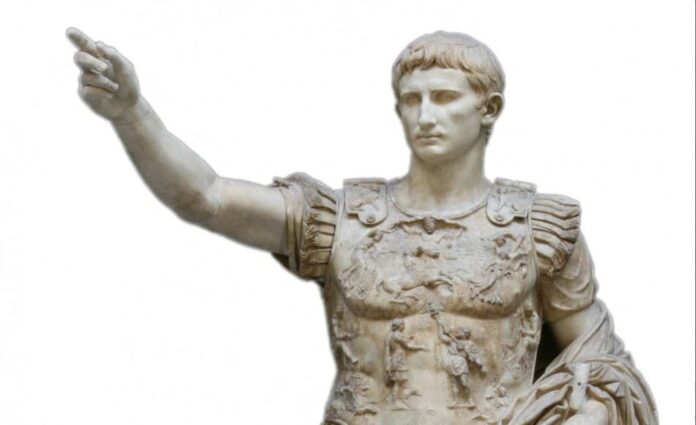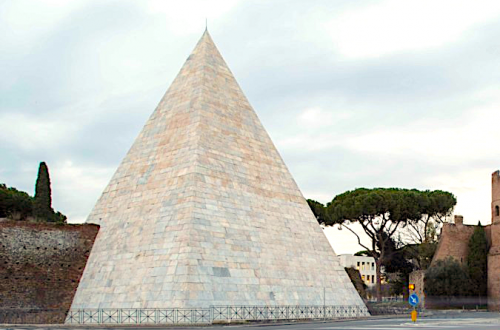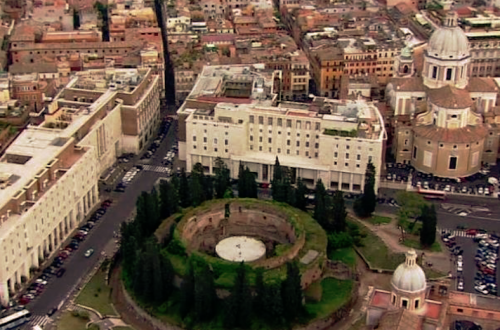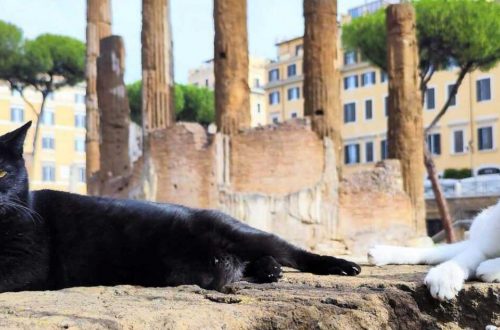
Octavian Augustus, the emperor who gave Rome 40 years of peace
Octavian Augustus
In his life as a reformist it was not only those that kept him busy, but also a succession of wars, betrayals, finished loves and rumors
Octavian Augustus was the most important character in history, at least for the Western World. His legacy has left a cultural imprint whose signs are still evident in many parts of the planet in language, law and civil engineering works. In fact, the Roman Empire, under his command, dominated all the countries bordering the Mediterranean Sea. Then extending north to Germany and Great Britain and east to the shores of the Caspian Sea.
The origins
Born in Rome on September 23, 63 BC. in a house on the Palatine Hill with the name of Gaius Octavius he was orphaned of his father at the age of 4. Gaius Julius Caesar Octavian Augustus (in Latin Gaius Iulius Caesar Octavianus Augustus) grew up educated by his great-uncle Julius Caesar. In fact, his mother, Azia Balba, is the daughter of Giulia, sister of Julius Caesar, and of Marco Azio Balbo. Instead his father, also named Gaius Ottavio, comes from a rich family of Velletri. The great-uncle takes care of his cultural and military training. In this regard it should be remembered that only two people have their name remembered in the calendar. Augusto, in the month of August, and Julius Caesar (Julius Caesar), at his behest linked to the name of the month of July.
As a boy, Julius Caesar sent him to Apollonia (present day Albania) to study under the guidance of Apollodorus of Pergamum. Augusto leaves with Gaio Cilnio Mecenate and Marco Vipsanio Agrippa who will remain his best friends and advisers for the rest of his life. Unfortunately, this is where Octavian learns of the death of his adoptive father. Who was killed by a conspiracy organized by a group of senators who considered the growing power of Julius Caesar a danger to the Roman Republic.
In 44 BC, at the age of 19, when Julius Caesar’s testament was publicly read, Augustus discovered that he had been adopted by his great-uncle who made him heir to his fortune and designated him as his successor.
Ascent to power
Obviously, the decision is not frowned upon by other aspirants to power. But after a few months of clashes, an agreement is reached between Augusto, Marco Antonio and Marco Emilio Lepido. Which, dividing the territories, govern together. In 40 BC the Brindisi agreements are signed which divide the control of the territories between the triunvirs. Antonio belongs to the East, Lepidus to Africa, while Octavian Augustus rules in the West. But the peace did not last long and in 31 BC. with the naval battle of Actium, the fleet of Augustus, commanded by Agrippa, defeats the ships of Antonio and his wife Cleopatra, powerful queen of Egypt.
Return of the Public Res
Left alone in power, Octavian Augustus must choose how to govern. With the acclamation of the people, who would like to see him at the helm, the Senate offers him the dictatorship. But Augustus thinks that the will of the people is the way to go because a peace based on dictatorship is not sure. So in 27 BC he returns the Res Pubblica in the hands of the Senate and the Roman people.
“Since then I was the first in consideration and influence, but I had no greater power than those who were my colleagues in the various judiciary”. This is his comment in his biography Res Gestae 34 (chapter, ed). But in reality it is a formal act and Augustus himself ensures, through the assumption of a series of crossed positions, that power remains firmly in his hands.
40 years of government
Augustus rules for forty years during which the Roman people undergoes a real transformation. In fact, from farmers and warriors they become imperial citizens, masters of the world, well administered, culturally educated and technically unsurpassed.
Every sector of the state comes from the reformed Augustus: the army, justice, religion. He creates specialized military corps for the management of the city order and the praetorian guard for the personal protection of the emperor. In addition, he introduces laws to defend the family and social policies to support the poorest population. He guarantees the discharged soldiers a life annuity and builds large public works, spas and aqueducts. He transforms Rome into a monumental city, worthy capital of a powerful Empire. In the economic sphere, he organizes the monetary system and facilitates commercial exchanges.
Augustus Imperator
His career is wisely managed in a gradual way and all the powers and honors are assigned to him by the Senate and not by his personal choice. Even before the battle of Actium he had received the title of Imperator, reserved for victorious generals. While that of Augustus was awarded to him after his victory in a meeting on January 16 in the year 27 BC. Indeed Augustus, which means worthy of veneration, will be the name that historians will choose to remember him in future centuries.
From the 31st, the Senate elected him consul every year and gave him the imperium proconsulare (military and executive power over the provinces), finally in 23 BC. Augustus receives the office that unquestionably marks the beginning of imperial power: the tribunicia potestas for life. Therefore, he can intervene in any administrative question, he has the right to veto unwanted decisions, all the provinces, the imperial ones, already under his control, and the senatorial ones, hitherto governed by consuls, report to him.
Augustus gives the empire 40 years of peace, which will go down in history with the name of Pax Romana, even if on the borders he is militarily engaged in the north in Europe, in the east in Asia and in the south in Africa to maintain the borders of the lands conquered in republican era.
Private life
Octavian Augustus Augustus had always had a group of powerful people opposed to his rise, who acted in the name of a republic that no longer existed. Unfortunately, however, his greatest betrayal came from his daughter Giulia. She participated in the most important conspiracy carried out against him.
Augustus manages to save his life on various occasions but not the marriage. The birth of Giulia, in fact, decreed the end of the relationship with Scribonia from which she divorces on the day of the birth of her daughter. However, shortly after Augustus meets and marries what will be the woman who will remain by his side until his death, Livia.
But Giulia does not give up
As a woman, the eldest daughter Giulia cannot aspire to the throne, so everything goes into the hands of Marcello, son of Octavia, the sister of Augustus. Who marries Giulia so that it is clear to everyone that the state will pass into his hands, but he dies only two years later.
In second marriage Giulia marries Marco Agrippa, a close friend of her father, with whom she has two sons Lucio and Caio, but they too die young.
Even at the time, there was no shortage of rumors
Livia, who supports Tiberius, born from her previous marriage, then takes care of ensuring her lineage. Who will effectively become the second Roman Emperor. Even today, however, the suspicion remains that Livia was involved in all the disasters that befell the other heirs except Tiberius. And historians also speak of an involvement in the “accidental death” of Augustus himself, right on his deathbed, so that she did not change her mind at the last moment about the inheritance.
But these are rumors, the official version is that Augusto, as his last words, said to Livia «Live in the memory of our marriage. Goodbye”. She died in her bed in the house of Nola, on August 19, 14 AD.
He also thought about passing on himself
Augustus himself will make sure to pass down his exploits to history by engraving the Res Gestae Divi Augusto (the acts of the divine Augustus) on bronze tables. A real autobiography. Fortunately, many copies of this text have been made on marble slabs and the one affixed to the wall of the temple of the goddess Rome and Augustus in Ankara has come down to us. A modern copy is now on the side of the Ara Pacis Museum facing the Mausoleum of Augustus in Rome.
The Mausoleum
The Mausoleum with its diameter of 300 Roman feet (about 87 meters) is the largest circular tomb known. Located in Piazza Agosto Imperatore in Rome, it consists of a cylindrical body covered in travertine blocks. At the center of which a door opens to the south preceded by a short staircase.
In the area in front there were two granite obelisks, then reused, one in Piazza dell’Esquilino, behind S. Maria Maggiore (1587), the other in the Dioscuri fountain in Piazza del Quirinale (1783).
On a very high structure stood the statue of Augustus in gilded bronze at 100 Roman feet (about 30 meters). It was probably the original bronze of the marble statue found in Livia’s villa in Prima Porta.
Through a long access corridor, the dromos, you reach the sepulchral cell, circular in shape, with three rectangular niches where the urns were placed. The niche on the left housed the ashes of Octavia, sister of the emperor and his son Marcellus. Augustus was buried in the room created inside the central cylindrical core.
Inside the tomb were the ashes of the members of the imperial family: general Marco Agrippa, Drusus Major, the two children Lucio and Gaius Caesar, Drusus Minor, Germanicus, Livia, Tiberius, Agrippina, Caligola, Britannico, Claudius and Poppea, Nero’s wife. The latter was instead excluded from the Mausoleum for unworthiness, like Giulia, the daughter of Augustus. For a short time the Mausoleum housed the ashes of Vespasian and finally of Nerva and after more than a century from the last deposition it reopened to house the ashes of Giulia Domna, wife of Emperor Septimius Severus.
Original article by Ginevra Larosa for Eurocomunicazione.com
![]()




